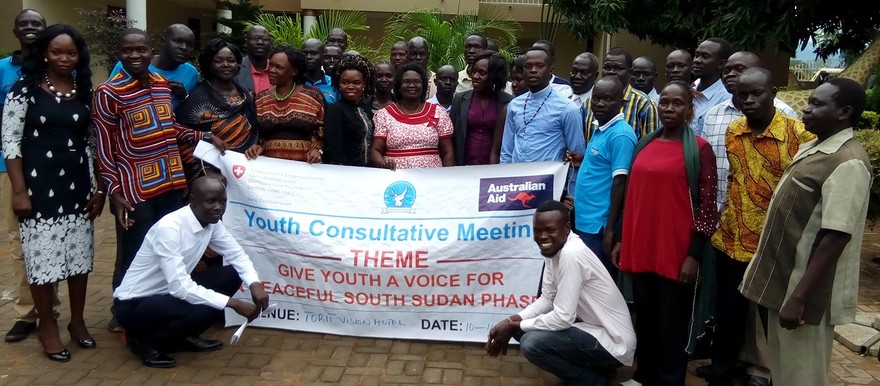A five-day consultative meeting for youth from South Sudan’s Greater Equatoria region kicked off in Torit State Monday. About 35 youth are attending the symposium, seeking to discuss challenges affecting youth.
The meeting is organised by South Sudan Youth Peace and Development Organization (SSYPADO), a non-profit making youth organization based in Juba.
Pitia Peter, the Program Manager for South Sudan Youth Peace and Development Organization (SSYPADO), told Radio Tamazuj that the consultative meeting is organized under the theme, “Give Youth a Voice for a Peaceful South Sudan.”
He said the project was initiated in 2017 with the objective of reaching South Sudanese population within and outside the country.
“We started in 2017 and in our mandate, we have to conduct six dialogues. We have to conduct three inside South Sudan and three outside. In South Sudan, we are to do dialogue in the Greater Equatoria, Greater Bahr al Ghazal and Greater Upper Nile. Outside South Sudan, we targeted our refugees in Gambella region of Ethiopia, Khartoum in Sudan and our refugees in northern Uganda,” he said.
He added, “So we maintained a platform where youth can also interact together, and also our elders because some of the issues raised might touch our elders and they need to respond. So it is a platform where people talk amicably to one another to understand the issues facing youth in general and also how do we connect ourselves with elderly persons so that we can integrate our approaches”.
Pitia further said SSYPADO has, since 2017, conducted all the dialogues in other regions amidst the insecurity challenges in some of the regions.
“Basically, we managed to conduct all the dialogues in Wau, which is for Greater Bahr al Ghazal. But while in Wau, we invited participants from other states and also moved to Malakal,” he said.
“In 2018, it was very difficult to do a dialogue in Malakal because you all know how it was affected by the war, but we managed to do a dialogue inside the protection of civilians’ camp,” he added.
John Maluk, a youth representative from Amadi State, decried tribalism in the country, saying it affects progress of youth.
“In our state, the issue of tribalism will not help. We need to take it out as youth and unite together with elders who advise us,” he said.
On his part, Stephen Akim Joseph from Lainya County in Yei River State, said unemployment, expensive marriages and the poor education sector due to insecurity have made life difficult for youth.
“Youth in Lainya are idle, people are staying with nothing and most of them have resorted to alcohol just to push time. Even marriage has become a problem among youth because of unemployment. Today if you want to marry, they demand a lot of resources and if you do not have the capacity, then you enter into problems and that is why you see the youth are now roaming around,” said Akim.
He added, “Another problem is the education sector in Lainya, which is not like in the past when you find schools, but many teachers are in the camp in Bidi-bidi and other places. Since when fighting occurred, many people in Lainya evacuated the area and sought refuge in camps because of insecurity.”
Meanwhile, the acting youth president in Torit state, Orupi David Uywek admitted gaps indeed exist between youth and policy makers in the country.
He, however, advised youth to stand up and speak for their rights.
“There was a very big gap between the youth and the decision makers, but today I want to assure you my dear youth that nobody will tamper with the abilities within yourselves to stop or silence you. Stand firm and express your ability because you have the freedom of expression. Today, South Sudan has a large percentage of youth, but their participation is really very low,” said Uywek.
He added, “People may think you are leaders of tomorrow, but for us, we will continue encouraging you that from today, you are the leaders South Sudan so if you wait for tomorrow, then what about people who will be born tomorrow. Where will you place them?” he asked.
According to estimates, 72 per cent of South Sudan’s 12.4 million population are 30 years old and below.




